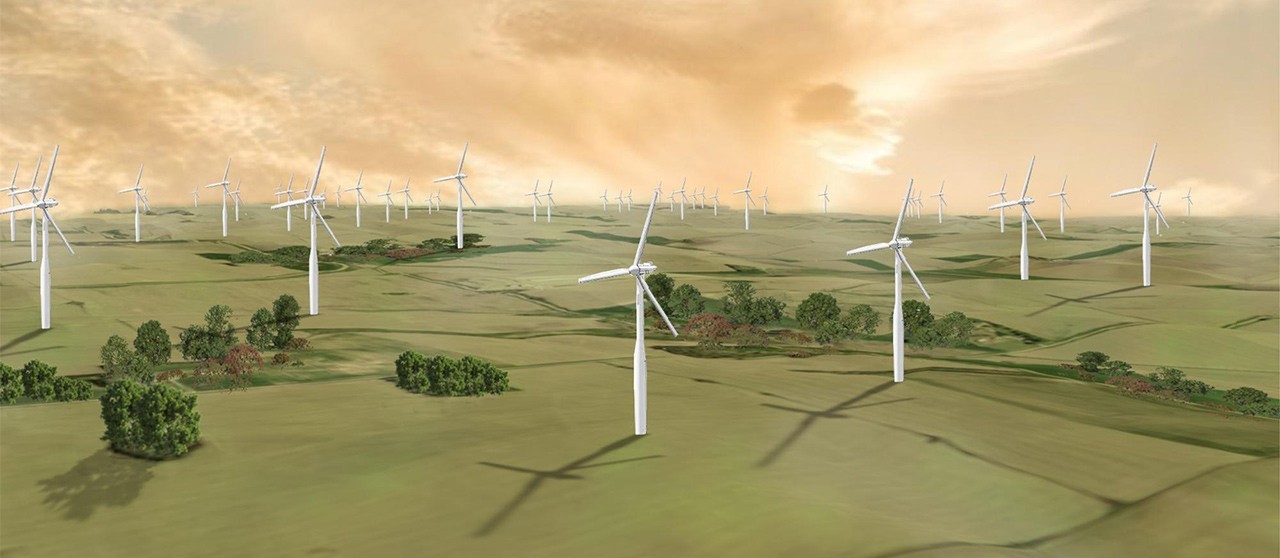The data centre that Facebook is creating in Papillion, Nebraska will be powered 100% by renewable energy, thanks in part to Enel Green Power North America, our United States subsidiary for renewable energy, and its new wind farm Rattlesnake Creek.
The Rattlesnake Creek plant, which is expected to start operations by the end of 2018, will have an installed capacity of 320 MW and will be capable of generating around 1.3 TWh per year.
The energy produced will be used to power the data centre in Papillion, a suburb of Omaha 190 km south of Rattlesnake Creek. The first part of the centre will be completed by 2020. The site in Papillion was Facebook’s ninth data centre and its sixth in the United States; the others are located in Sweden, Ireland and Denmark.
In actual fact Facebook and Enel Green Power North America have signed a power purchase agreement, a long-term deal for the supply of energy that allows for the data centre to operate 100% with renewable energy.
Another agreement has been signed with Adobe: the power and renewable energy credits from a 10 MW portion of Rattlesnake Creek will be sold to the software company through a bundled power purchase agreement over the 2019-2028 period, while the plant’s total output is scheduled to supply the Facebook data centre in 2029.
“We are thrilled to be partnering with Facebook and Adobe in this project and to meet their individual energy needs through a customised solution. Agreements like these are a prime example of our ability to work collaboratively with corporate customers on tailor-made solutions, managing multiple off-takers with different energy supply volume needs”
Bobby Hollis, Director of Global Energy at Facebook, explained: “Powering our data centres with 100% clean and renewable energy is not just a goal for Facebook, it is a requirement of our business. In the future the Rattlesnake Creek wind farm will enable us to power the Papillion Data Center, and fulfills our passion to expand the energy market for other corporate buyers, like Adobe.”
“We’re excited to reach the next milestone in our sustainability goals through this agreement with Enel and Facebook,” said Vince Digneo, sustainability strategist, Adobe. “Collaboration is everything and we believe that PPA partnerships like this are the way forward. Grid-scale renewable energy purchases are a key part of meeting our Science Based Targets and are critically important in decarbonising U.S. grids.”
Enel Green Power, world leader in the sector of clean energy, is specialised in the development and management of renewable plants in 24 countries and is present in Europe, America, Asia, Africa and Oceania. Total productive capacity is in excess of 3.6 GW and includes almost every renewable energy source: from hydroelectric to geothermal, wind power to solar energy. Enel Green Power North America currently operates around 100 plants.
The agreement with Facebook is just the latest step in an ambitious industrial strategy that we are creating with renewable sources and which is based on the cornerstones of sustainability, innovation, and reducing CO2 emissions. This approach was partly inspired by the United Nations Sustainable Development Goals (SDGs) which in September 2015 established a series of targets to achieve by 2030 relating to the protection of the environment and the fight against global poverty.
Sustainable Development Goal number 7 is, in fact, to “ensure access to affordable, reliable, sustainable and modern energy for all”. This is a challenge of enormous proportions if we consider that currently one in every five people in the world does not have a modern connection to electric energy. Furthermore, a remarkable three billion people use wood, coal, or animal waste as fuels for cooking and heating: these are all major sources of pollution. Redressing this situation is one of the United Nations’ main strategic goals, and energy production from renewable sources represents a key feature of the response to this challenge. We are firmly committed to playing our part.


